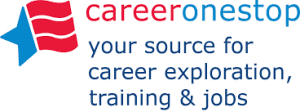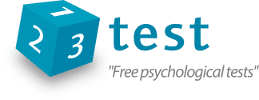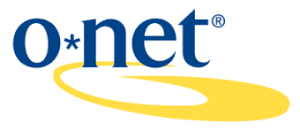Identifying & describing your skills
When looking and applying for jobs, it’s important for you to be able to identify and effectively communicate your skills to those involved in the the job search, application and interviewing processes.
Keep reading to learn about soft and hard skills, what skills employers are looking for, and free tools to help you identify and describe your hire-worthy skills.
What are skills?
Skills are the combination of knowledge, personal qualities, and abilities you have developed and learned throughout your life and work. Employers look for two types of skills when hiring a new employee: soft skills and hard skills.
Soft Skills are defined by the dictionary as “personal attributes that enable someone to interact effectively and harmoniously with other people” and are also known as interpersonal or people skills. Soft skills relate to someone’s personality and ability to work with others and are not easily measurable. This in-demand skill set includes good communication, listening, attention to detail, critical thinking, empathy, and conflict resolution abilities, among other skills.
In CareerBuilder’s annual hiring and recruitment trends survey for 2019, 92% of employers said soft skills are important in determining whether they will hire candidates. 80% of employers also said soft skills are equally or more important than hard skills when hiring candidates. The 2019 survey also revealed that the top soft skills employers are looking for are the ability to be team-oriented (51 percent), attention to detail (49 percent), and customer service (46 percent).
92% of employers said soft skills are important in determining whether they will hire candidates. 80% of employers also said soft skills are equally or more important than hard skills when hiring candidates.
Hard skills or technical skills are quantifiable and teachable. They are the tangible capabilities of an individual that can be defined, measured and assessed and include the specific technical knowledge and abilities required for a job. Examples of hard skills include computer programming, accounting, mathematics, and data analysis.
Being able to effectively identify and describe your skills will:
- Help you highlight your specific skills that are relevant to the job(s) you’re searching for
- Provide you with valuable talking points about why you’re the best fit for the job at hiring fairs
- Allow your resume to stand out to employers of jobs you want in online job searches
- Prepare you to answer key questions at job interviews such as What can you do for my organization? and What problems can you solve?
So how do you identify and describe your skills? Or how do you know what skills you already have that align with certain jobs you may want? Take a look at the following free tools and resources that can help you best identify and describe your skills during your job search.
Free Assessment Tools
 Career OneStop Tools
Career OneStop Tools
Career OneStop is a website sponsored by the US Department of Labor that offers a variety of tools and information to help people find and manage their career. The site provides tools job seekers can use to enhance their employment opportunities.
- Skills Matcher Tool: The Skills Matcher tool helps you identify your skills by asking you to rate your levels on 40 key workplace skills. This will help you create a list of your top-rated skills and match them to careers that require those skills.
- mySkillsmyFuture Tool: The mySkillsmyFuture website helps you find what types of careers your skills and experience will transfer to. Simply type in a previous job you have had to pull up a list of similar jobs. Click on a job you’re interested in, to see a list of typical job duties and other information. You can also compare the skills between that job and the job you entered by clicking on the “Go To Compare Skills” tab at the top of that page.
 123test.com
123test.com
123test.com offers free psychological tests and results for individuals, including career assessment.
- Competency Test: This free test allows you to determine your strengths so that you can compare yourself with others in the labor force. The test takes 15-20 minutes to complete, measures the 16 most common and work-related competencies, and provides development tips for each competence.
 O*NET OnLine
O*NET OnLine
O*NET OnLine is a website created by the US Department of Labor for the general public to provide broad access to the O*NET database of occupational information. The O*NET database includes information on skills, abilities, knowledge, work activities, and interests associated with occupations. You can look up your strongest skills and see which occupations are the best match.
- Advance Skills Search feature: This search feature on the O*NET website allows you to view listings of skills based on occupational information. Skills are grouped and searchable by Basic Skills, Complex Problem Solving Skills, Resource Management Skills, Social Skills, Systems Skills and Technical Skills. Each category has a subgroup of skills and provides descriptions and level of importance among various occupations for each.



